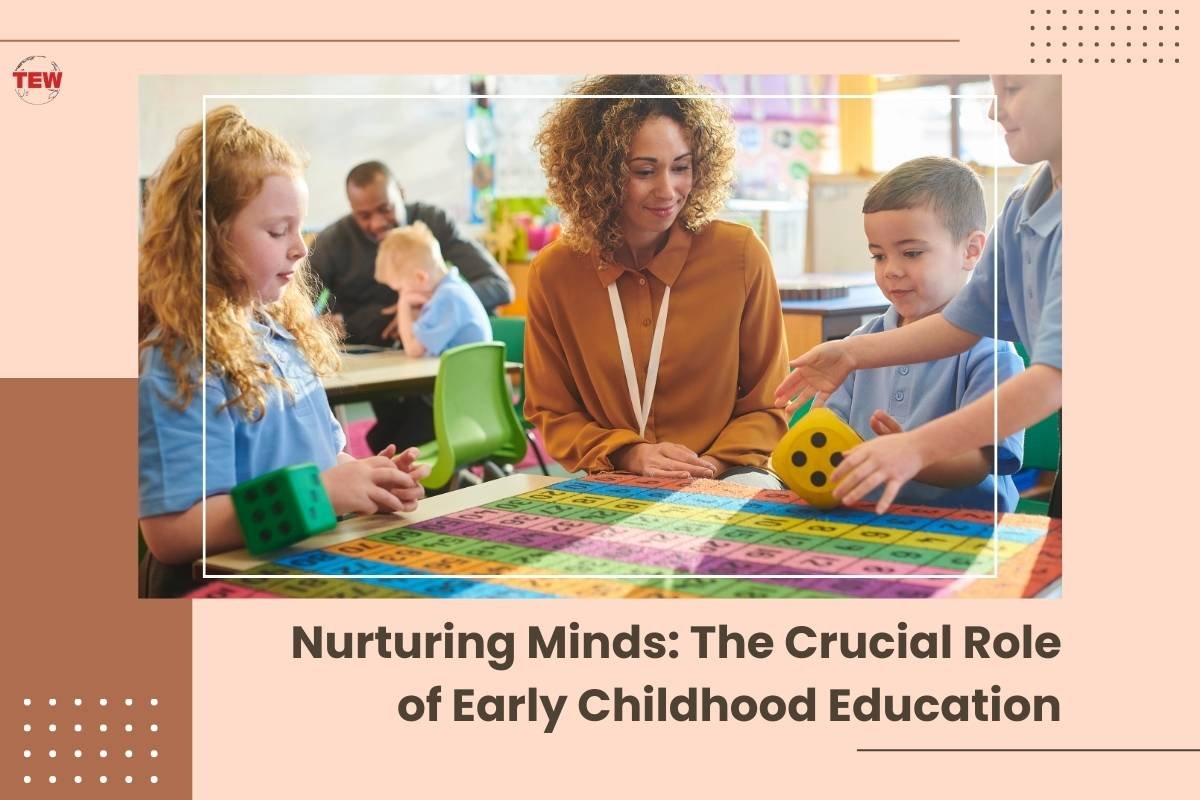Early childhood education (ECE) is a cornerstone in the development of young minds, providing a crucial foundation that shapes a child’s cognitive, social, and emotional well-being. As educators, parents, and policymakers increasingly recognize the significance of the early years, there is a growing emphasis on creating enriching environments that foster holistic growth. In this comprehensive exploration, we delve into the key aspects of early childhood education, its benefits, challenges, and the evolving landscape that seeks to provide every child with a strong start in their educational journey.
The Importance of Childhood Education at Early Stage:
Cognitive Development:
The early years of a child’s life are marked by rapid brain development, laying the neural groundwork for future learning and comprehension. Early childhood education stimulates cognitive growth through age-appropriate activities, games, and interactive learning experiences. These activities are designed to enhance language acquisition, numeracy skills, problem-solving abilities, and critical thinking.
Research consistently demonstrates that children who participate in quality education programs show improved cognitive performance, better school readiness, and a greater likelihood of academic success throughout their educational journey.
Social and Emotional Development:

Beyond academics, early education plays a pivotal role in nurturing social and emotional skills. Children learn to navigate relationships, communicate effectively, and develop empathy in a structured and supportive environment. These essential skills not only contribute to a child’s immediate social interactions but also serve as a foundation for positive mental health and well-being in later years.
Early education fosters a sense of belonging and community, promoting cooperation, teamwork, and conflict resolution. Children learn to express their emotions, understand those of their peers, and develop a strong sense of self.
Early Intervention and Identification:
Early childhood education provides a valuable platform for identifying and addressing developmental delays or learning challenges. Educators trained in early childhood development are adept at recognizing signs of potential issues and can collaborate with parents and specialists to implement timely interventions. Early intervention can significantly improve outcomes for children facing developmental obstacles, ensuring they receive the support needed to thrive academically and socially.
Parental Involvement and Support:

Early childhood education is not solely confined to classrooms; it extends to the involvement of parents and caregivers. Parents are recognized as a child’s first and most influential teachers, and quality ECE programs actively engage them in their child’s learning journey. Workshops, parent-teacher conferences, and interactive activities create a collaborative relationship between educators and families, fostering a supportive environment for the child’s development.
Challenges in Childhood Education at Early Stage:
Access and Affordability:
While the benefits of early education are widely acknowledged, access to quality programs remains a challenge, particularly for economically disadvantaged families. Affordability, availability of programs, and geographical disparities often limit the accessibility of ECE opportunities for all children. Addressing these challenges requires concerted efforts from policymakers, communities, and educational institutions to ensure that every child, regardless of socioeconomic background, can access quality early childhood education.
Workforce Training and Compensation:
The effectiveness of childhood education heavily relies on the skills and dedication of educators. However, the ECE workforce is often undervalued and under-compensated, leading to high turnover rates and potential gaps in the quality of education provided. Investing in professional development opportunities and equitable compensation for early childhood educators is crucial to retaining skilled professionals who can contribute meaningfully to a child’s early learning experiences.
Recognition of Diversity and Inclusivity:
Recognizing and celebrating diversity is an integral aspect of childhood education. Creating inclusive environments that embrace different cultures, languages, and abilities ensures that every child feels seen and valued. Educators must be trained to address the unique needs of diverse learners, including those with disabilities or from marginalized communities, fostering an inclusive and equitable learning environment.
The Evolving Landscape of Early Childhood Education:
Technological Integration:

The digital age has ushered in new opportunities for early childhood education, with the integration of technology into learning environments. Educational apps, interactive software, and digital platforms can enhance early literacy, numeracy skills, and cognitive development. However, a balanced approach is essential to ensure that technology complements, rather than replaces, hands-on and interactive learning experiences.
Play-Based Learning:
Play is the natural language of children, and play-based learning approaches are gaining prominence in childhood education. Recognizing the importance of imagination, creativity, and exploration, educators are incorporating play into curricula to stimulate cognitive, social, and emotional development. Play-based learning encourages curiosity, problem-solving, and collaboration, laying the groundwork for a lifelong love of learning.
Research-Informed Practices:
Advancements in neuroscience and educational research contribute to a deeper understanding of early childhood development. Educators are increasingly adopting evidence-based practices that align with the latest research findings, ensuring that teaching methods are grounded in proven approaches to maximize positive outcomes for children.
Conclusion:
Early childhood education is a transformative force that shapes the trajectory of a child’s life. From cognitive development and social-emotional skills to early intervention and parental involvement, the benefits are far-reaching. While challenges persist, the evolving landscape of ECE holds promise, driven by technological integration, play-based learning, and a commitment to research-informed practices. As we recognize the pivotal role of early childhood education, it becomes imperative to invest in accessible, high-quality programs that lay a strong foundation for future generations.




